Bernard Darnton (born 18 December 1972 in Leicester, United Kingdom) is a former leader of Libertarianz, a libertarian political party in New Zealand.
Bernard Darnton (born 18 December 1972 in Leicester, United Kingdom) is a former leader of Libertarianz, a libertarian political party in New Zealand.
In the party's list for the 1999 election, Darnton had been ranked fourth. In the party list announced for the 2002 election, however, Darnton was ranked twentieth, although the list itself was not submitted by the appropriate deadline. Darnton became leader in mid-2004, replacing Russell Watkins, and remained in the position until the 2008 election. In 2004, Darnton unsuccessfully stood for election in the Wellington Regional Council's Wellington constituency. For the 2005 and 2008 General Elections, Darnton headed the Libertarianz party list and was the electorate candidate for Wellington Central.
On 29 June 2006, Bernard Darnton filed proceedings in the High Court, suing Helen Clark for allegedly misappropriating public funds to pay for the Labour Party's pledge cards during the 2005 election. Some commentators labelled the lawsuit a stunt, although it received some media coverage as concern about the "pledge card" funding grew. [1]
On Sunday 10 September 2006, the lawsuit was the subject of a front-page story [2] in The Sunday Star-Times newspaper. The Labour party promptly accused the Libertarianz party of being part of a conspiracy with the National party, alleging that the small party could not afford to bring such a case to court. [3]
In October 2006, after the Auditor-General released a report declaring that the misappropriation of funds was illegal, Labour and other political parties immediately announced that they would pay back the money. On 17 and 18 October, a majority, including the Labour Party, passed a law through Parliament to 'retrospectively validate' the spending, making it legal, which is required under the Public Finance Act 1989. In the circumstances, however, it also effectively makes the misspending immune from court proceedings.
In response, the Libertarianz party declared 18 October 2006 to be "Banana Republic Day", and issued press releases.
The Green Party of Aotearoa New Zealand, commonly known as the Greens, is a green and left-wing political party in New Zealand. Like many green parties around the world, it has four organisational pillars. The party's ideology combines environmentalism with left-wing and social-democratic economic policies, including well-funded and locally controlled public services within the confines of a steady-state economy. Internationally, it is affiliated with the Global Greens.
New Zealand First, commonly abbreviated to NZ First, is a nationalist and populist political party in New Zealand. The party formed in July 1993 following the resignation on 19 March 1993 of its leader and founder, Winston Peters, from the then-governing National Party. Peters had been the sitting Member of Parliament for Tauranga since 1984 and would use the electorate as the base for New Zealand First until consecutive defeats by National Party candidates in 2005 and 2008. His party has formed coalition governments with both major political parties in New Zealand: first with the National Party from 1996 to 1998 and then with the Labour Party from 2005 to 2008 and from 2017 to 2020. Peters has served on two occasions as deputy prime minister.
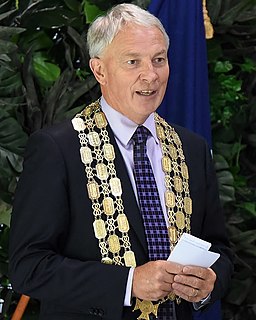
Philip Bruce Goff is a New Zealand politician who has been the Mayor of Auckland since 2016. Previously, he was a Member of the New Zealand Parliament from 1981 to 1990 and again from 1993 to 2016. He served as Leader of the Labour Party and Leader of the Opposition between 11 November 2008 and 13 December 2011.

Libertarianz was a political party in New Zealand that advocated libertarianism, favouring self-government and limiting the power of the government over the individual. Ayn Rand's philosophy of Objectivism was a major influence on the party. Its slogan "More Freedom, Less Government" is indicative of the party's basic policy platform. It went into recess and was de-registered by its own request in 29 January 2014.

Trevor Colin Mallard is a New Zealand politician and member of the Labour Party. First elected to Parliament in 1984, he was Speaker of the New Zealand House of Representatives from 2017 until 2022.
Annabel Margaret Young is a former New Zealand politician. She was a Member of Parliament from 1997 to 2002, representing the National Party.
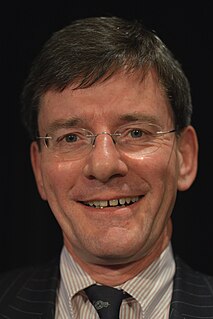
Christopher Francis Finlayson is a New Zealand lawyer and former Member of Parliament, representing the National Party. From 19 November 2008 until 26 October 2017 he was a Cabinet minister. He was the Attorney-General, Minister for Treaty of Waitangi Negotiations and, for a shorter period, Minister of Culture and Heritage. On 6 October 2014, Finlayson also assumed responsibility for the ministerial portfolios of Minister Responsible for the Government Communications Security Bureau and the Minister in Charge of the New Zealand Security Intelligence Service, New Zealand's two main intelligence agencies. He left parliament and politics in January 2019.
The 2005 New Zealand election funding controversy occurred in the aftermath of the 2005 New Zealand general election.

Mana is a New Zealand parliamentary electorate in the Wellington metropolitian area. It has been held by Barbara Edmonds of the Labour Party since the 2020 election.

Seventy of the one hundred and twenty members of the New Zealand House of Representatives elected in New Zealand's 2008 general election will be from single member constituencies, an increase of one electorate seat from 2005. The initial composition of the 2005 Parliament gave the Labour and National parties each 31 constituencies, the Māori Party four and ACT, United Future and the Progressive Party one each.

Grant Murray Robertson is a New Zealand politician and member of the Labour Party who has served as the 19th deputy prime minister of New Zealand since 2020 and the minister of Finance since 2017. He has served as Member of Parliament (MP) for Wellington Central since 2008.

The 2017 New Zealand general election took place on Saturday 23 September 2017 to determine the membership of the 52nd New Zealand Parliament. The previous parliament was elected on 20 September 2014 and was officially dissolved on 22 August 2017. Voters elected 120 members to the House of Representatives under New Zealand's mixed-member proportional (MMP) voting system, a proportional representation system in which 71 members were elected from single-member electorates and 49 members were elected from closed party lists. Around 3.57 million people were registered to vote in the election, with 2.63 million (79.8%) turning out. Advance voting proved popular, with 1.24 million votes cast before election day, more than the previous two elections combined.
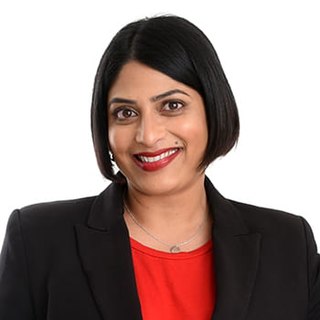
Priyanca Radhakrishnan is a New Zealand politician who has been elected to the New Zealand parliament since the 2017 general election as a representative of the New Zealand Labour Party and is currently Minister for the Community and Voluntary Sector.

The 2014 New Zealand Labour Party leadership election was held to choose the Leader of the Labour Party. Andrew Little won the election and became leader of the party.

The 2016 Wellington City mayoral election was part of the New Zealand local elections and was held on 8 October to determine the next Mayor of Wellington. The incumbent was Celia Wade-Brown, who was first elected in the 2010 mayoral election. Wade-Brown did not seek re-election. Her title was pursued by her deputy, Justin Lester, councillors Jo Coughlan, Andy Foster, Helene Ritchie and Nicola Young, former mayor of Porirua City Nick Leggett and independent candidates Keith Johnson and Johnny Overton.

Tahere Paul Eagle is a New Zealand politician and member of the New Zealand House of Representatives for the Rongotai electorate. He was previously a Wellington City Councillor and Deputy Mayor, and was the first person of Māori descent to enter the office of Deputy Mayor of Wellington.
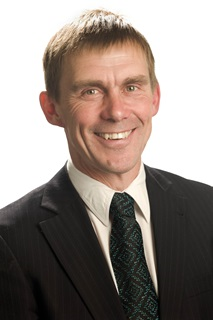
Andrew John Whitfield Foster is a New Zealand politician who currently serves as Mayor of Wellington. Foster has served on the Wellington City Council since 1992.
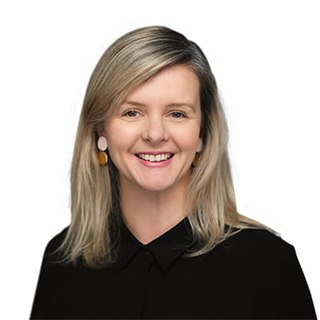
Camilla Vera Feslier Belich is a New Zealand lawyer and politician who became a Member of Parliament, representing the New Zealand Labour Party, in 2020.

Ibrahim Omer is a Eritrean-born New Zealand politician. In 2020 he became a Member of Parliament for the Labour Party.

Stephen Berry is a perennial candidate in New Zealand national and local politics, running on right-wing positions.